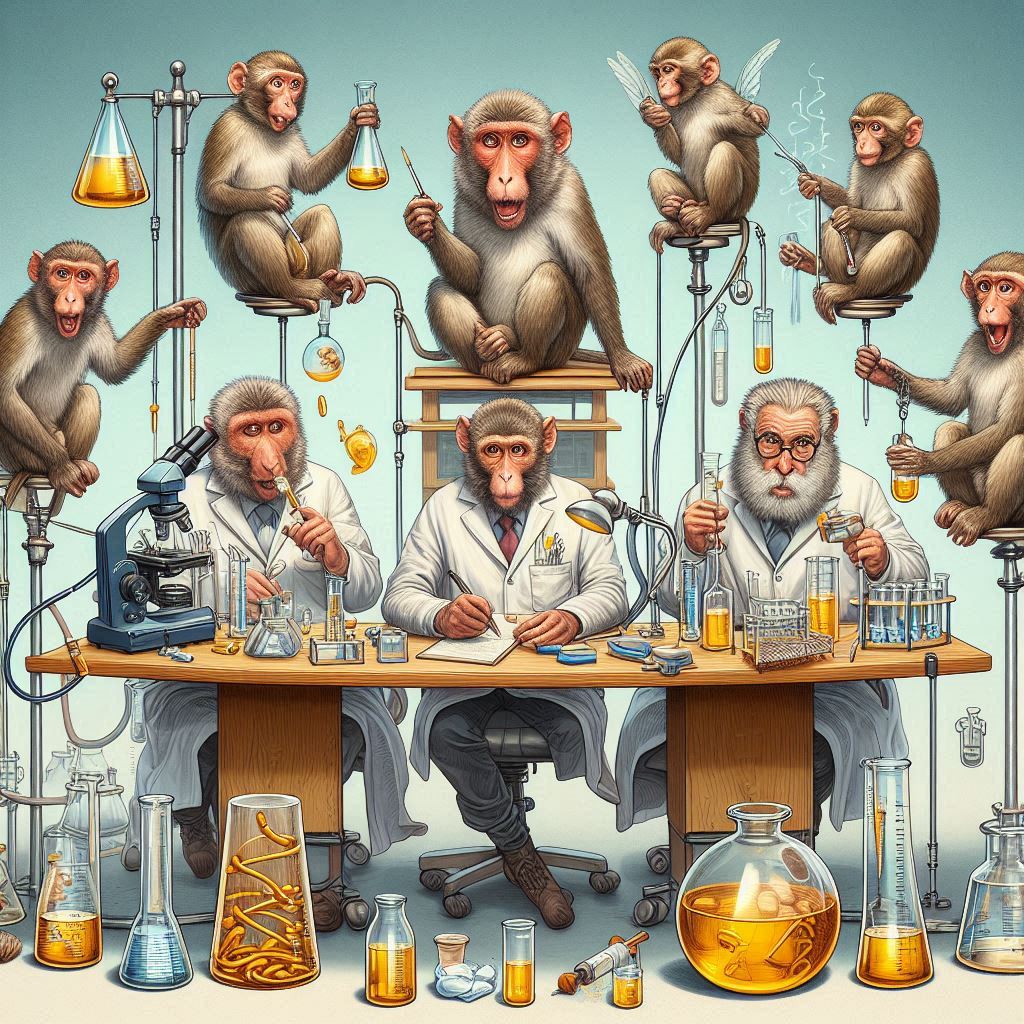
The Role of Monkeys in Medical Research: Ethical Considerations
Share
The Role of Monkeys in Medical Research: Ethical Considerations
Monkeys have played a vital role in advancing medical science, contributing to breakthroughs in areas like neurology, vaccine development, and disease modeling. Their close genetic relationship to humans makes them especially valuable for research involving complex biological systems. However, the use of primates in laboratories also raises significant ethical concerns—prompting an ongoing debate about the balance between scientific progress and animal welfare.
Why Monkeys Are Used in Medical Research
Monkeys, particularly species like rhesus macaques and cynomolgus monkeys, share a high percentage of DNA with humans—about 93% to 98%. This similarity makes them useful for studying diseases and testing treatments before moving to human trials.
Key Contributions:
-
Polio Vaccine Development: In the mid-20th century, monkeys were instrumental in developing and testing polio vaccines that saved millions of lives.
-
HIV and AIDS Research: Monkeys have helped scientists understand the immune response to HIV, paving the way for treatment strategies.
-
Neuroscience and Brain Studies: Research on primate brains has led to insights into memory, motor control, and even brain-machine interfaces.
-
COVID-19 Vaccines: During the pandemic, monkeys were used to test early vaccine candidates and understand how the virus spreads.
Ethical Concerns and Controversies
Despite their contributions to science, the use of monkeys in research has been widely scrutinized. Critics point to the cognitive complexity and emotional capacity of primates, arguing that subjecting them to captivity, invasive procedures, and isolation is inhumane.
Common Ethical Issues:
-
Suffering and Psychological Harm: Monkeys can experience stress, depression, and trauma when confined or experimented on.
-
Necessity and Alternatives: With advancements in artificial intelligence, organ-on-a-chip technology, and 3D tissue modeling, some argue that animal testing is becoming less essential.
-
Lack of Consent: Unlike human trials, animal subjects cannot give consent—raising philosophical questions about moral agency and rights.
Animal rights organizations, such as PETA and the Humane Society, actively campaign to end primate research, citing numerous undercover investigations that reveal mistreatment or poor living conditions in some labs.
Regulations and Oversight
To address these concerns, most countries have established strict regulations governing the use of monkeys in research. These include:
-
Institutional Animal Care and Use Committees (IACUCs): Required in the U.S. to review and approve all research protocols involving animals.
-
3Rs Principle: Researchers are encouraged to Reduce the number of animals used, Refine procedures to minimize suffering, and Replace animals with alternatives when possible.
-
International Guidelines: Bodies like the National Institutes of Health (NIH), the EU Directive 2010/63/EU, and the World Health Organization set global standards for ethical animal research.
Despite this oversight, enforcement varies, and critics argue that loopholes and lax penalties can still lead to abuse.
The Push Toward Ethical Alternatives
In recent years, there has been a growing investment in non-animal testing methods:
-
Organoids and Lab-Grown Tissue: Allow scientists to study human biology more directly without animal use.
-
Computer Modeling and AI Simulations: Increasingly powerful tools for predicting drug responses and disease progression.
-
Ethical Research Advocacy: Organizations and scientists alike are pushing for a future where innovation doesn’t depend on animal suffering.
While these alternatives show promise, many researchers argue that they cannot yet fully replicate the complexity of a living organism—especially in fields like immunology and neuroscience.
Conclusion: A Scientific and Moral Dilemma
The role of monkeys in medical research represents a complex intersection of scientific necessity and moral responsibility. While their contributions have saved countless human lives, growing awareness of animal cognition and emotion forces us to rethink how research is conducted. The path forward likely involves continued ethical scrutiny, stronger oversight, and a transition toward innovative alternatives that reduce or eliminate the need for primate testing.
Suggested SEO Keywords:
monkeys in medical research, ethical animal testing, primates in science, animal research ethics, use of monkeys in labs, monkey testing controversy, scientific testing on monkeys, alternatives to animal testing, lab animal welfare, 3Rs in animal research
